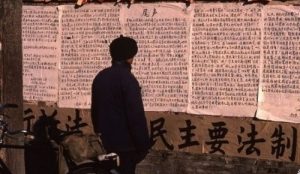Friday, June 2, 3:00 – 5:00 p.m. in CEAS 319 (1155 E. 60th St.)
Hyunjeong Lee, Against the Bamboo Curtain: Ri Yŏng-hŭi’s Writings on China in the 1970s
Please join us this Friday for a presentation by Hyunjeong Lee, Associate Professor in Department of Chinese Language and Culture at the University of Seoul. Professor Lee summarizes her talk as follows:
This talk revisits South Korean journalist and scholar Ri Yŏng-hŭi’s (1929-2010) writings on China in the 1970s in an attempt to find a productive way to approach China’s socialist experience within the context of Korean intellectual history. Ri’s lively and rigorous writings on contemporary China in the 1970s, which relentlessly challenged the mainstream anti-Communist views, had a profound impact on South Korea’s younger generation of the time. However, after witnessing the collapse of the Soviet Union in 1991, as well as the political and social changes that occurred in China after the 1980s, Ri admitted not only that his knowledge of contemporary Chinese affairs was far from complete, but also that his enthusiasm about Chinese socialism was mistakenly ideal.
As I closely examine the details of Ri’s retreat in his position with regards to Chinese socialism and the significance of this retreat for South Korean intellectuals, I suggest that Ri’s retreat leads us to confront the fundamental dilemma embedded in the Cultural Revolution, that is, the complex relationship between enlightenment and collectivity. Based on Ri’s perception of the Cultural Revolution as “a revolution of humanity,” as well as his understanding of Chinese writer Lu Xun, I argue that Ri appreciated the coexistence of enlightenment and collectivity at some level during the Cultural Revolution, although he was not able to fully tease out the above-mentioned dilemma underlying this coexistence. Korean scholars of the present day need to contemplate the dilemma that Ri left unclarified as he retreated.
Please note that there will be no pre-circulated paper for this meeting. As our final meeting of the year, the workshop will be followed by a reception with food and drinks. We look forward to your attendance!




